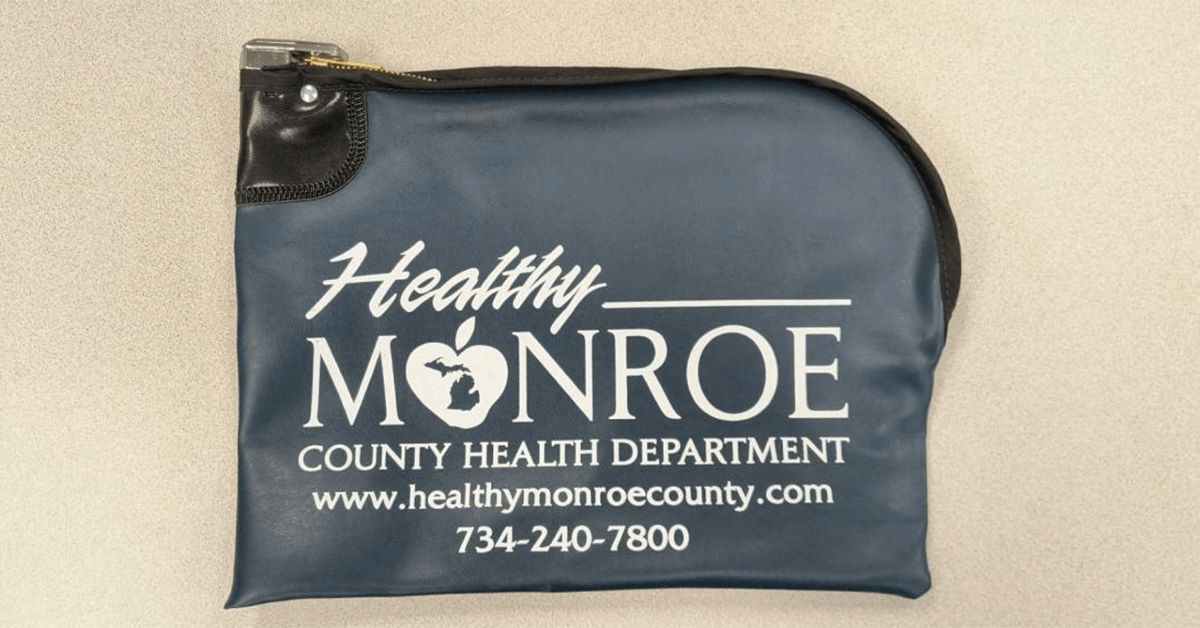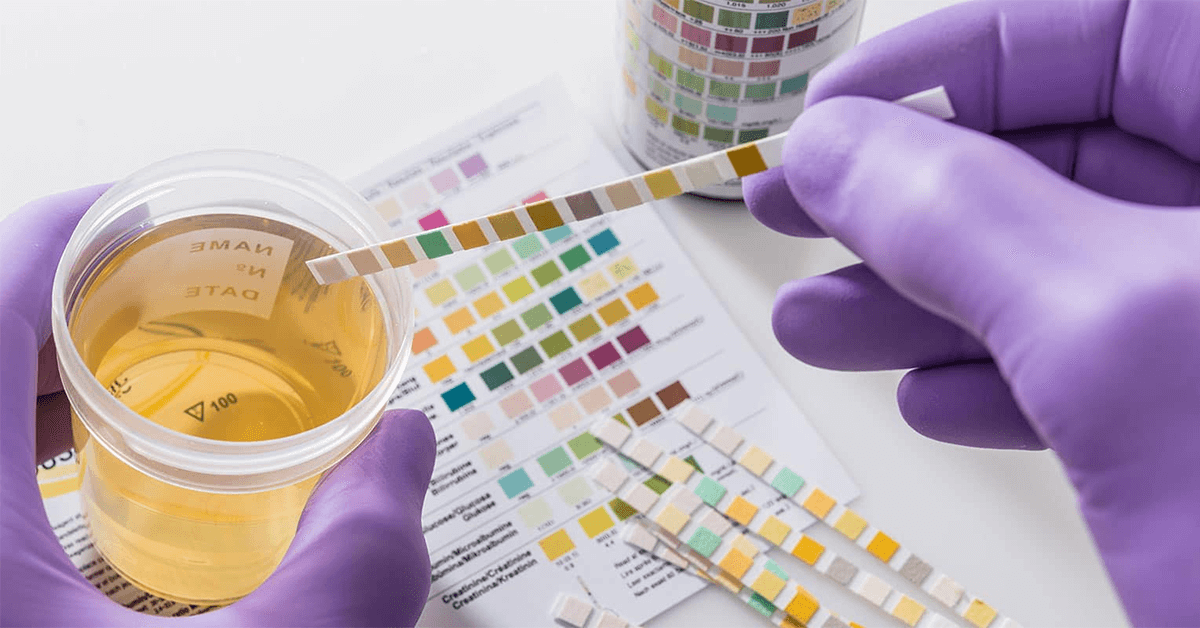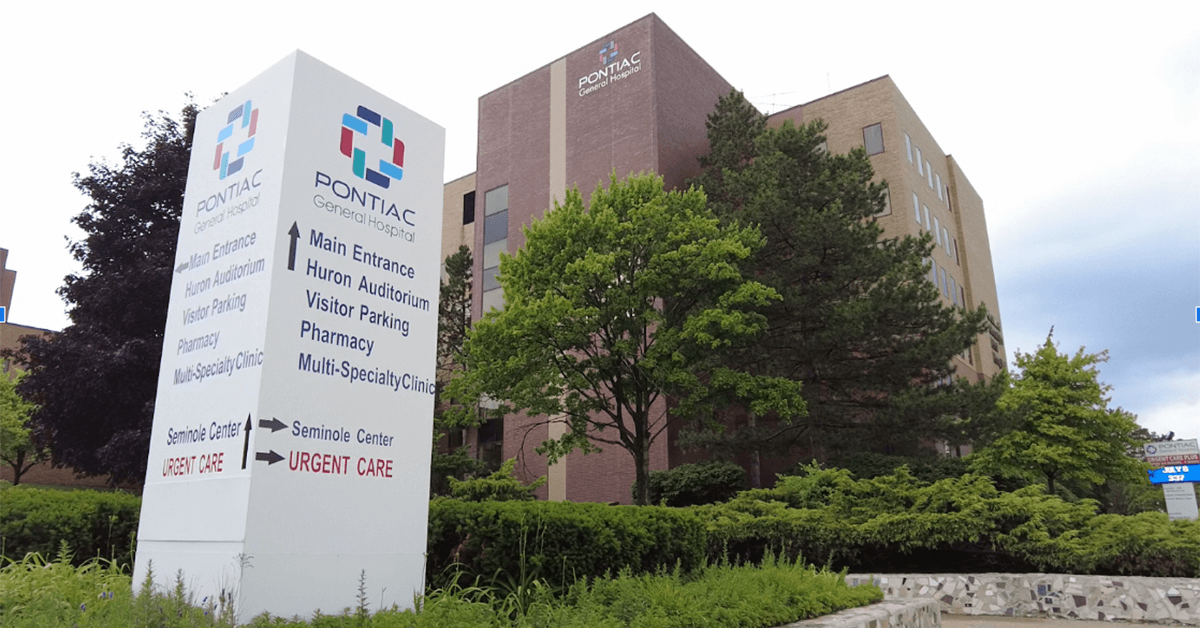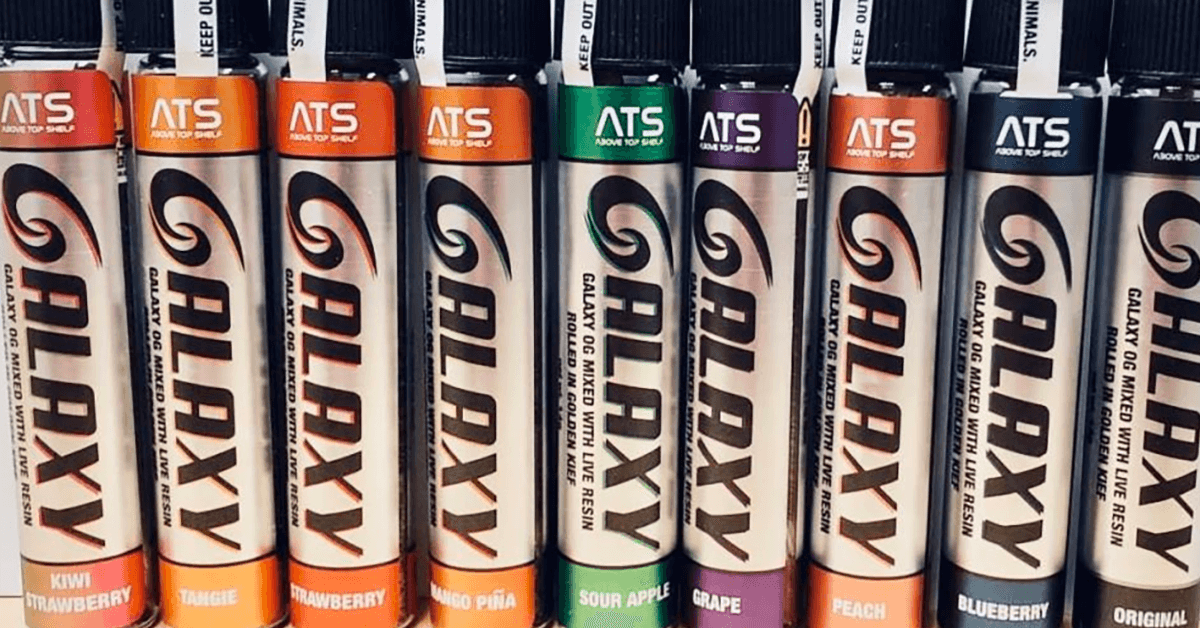Baker College Partners with House of Dank for Cannabis Internship Program

Baker College has partnered with House of Dank (HOD), a well-known cannabis brand in Michigan, to offer cannabis-related internships in Metro Detroit. This collaboration aims to develop a skilled workforce for the cannabis industry while providing students with thorough education and training.
The private college in Oakland County is launching three specialized cannabis certificates to prepare students for careers in the marijuana industry. Each course, available fully online, takes nine weeks to complete.
"Partnering with House of Dank allows us to bridge the gap between education and employment," stated Kelley Suggs, public relations manager for Baker College. "Our goal is to ensure students not only gain valuable knowledge about the cannabis industry but also have the opportunity to apply these skills in real-world settings through internships and job opportunities."
Program Highlights
The cannabis certificate programs, developed in collaboration with Green Flower, a leader in cannabis education, cover three essential areas: Advanced Dispensary Associate Skills Training, Cannabis Manufacturing, and Cannabis Cultivation. These programs are designed to meet the growing demand for skilled workers in the expanding cannabis industry.
As part of this initiative, House of Dank will conduct open interviews and plans to hire interns from Baker College's programs, aiming to place them by Labor Day weekend, coinciding with the annual Soaring Eagle Arts, Beats & Eats festival in downtown Royal Oak, Michigan.
"House of Dank has always been about innovation and pushing our industry forward. In keeping with this tradition, we have partnered with Baker College and their new cannabis education program to create a new pipeline of careers for their students. Starting at this year's Arts, Beats & Eats festival, we will introduce the first class of their graduates and our paid interns. We're excited for all who will visit Dankland and/or Dankway this year," said Michael P. DiLaura, House of Dank chief of corporate operations.
Free Cannabis Storage Bags Now Available at Monroe County Health Department

Locking cannabis storage bags are now available for free at the Monroe County Health Department, located at 2353 S. Custer Road. These bags can be picked up from 8 a.m. to 5 p.m. on weekdays.
These bags are designed to protect children and pets from accidental cannabis ingestion.
"Although medical and recreational cannabis is legal in Michigan, it is important that adults in possession of cannabis take steps to keep the substance locked up in a safe place," the health department emphasized in a recent news release. "Locking bags provide a way to store cannabis safely away from children and pets who may inadvertently ingest a cannabis product, which can put them at risk of serious health effects."
In addition to distributing the storage bags, the Monroe County Health Department will be airing radio and television advertisements over the next few months to promote safe cannabis use and storage. This initiative is funded by the Marijuana Operation and Oversight grant from the Cannabis Regulatory Agency within the Michigan Department of Licensing and Regulatory Affairs.
A national study published in "Pediatrics" reported that in 2017, there were slightly over 200 cases of accidental consumption of cannabis edibles by children under six years old in the U.S. By 2021, this number had surged to 3,054, marking a 1,375% increase, according to the Monroe County Health Department.
"The Michigan Poison and Drug Information Center recorded a 75% increase in cannabis toxicity among children aged five and younger from 2020-2022. Meanwhile, cases among children aged four to 13 grew by 60% from 2020-2023," the health department stated.
In cases where an individual experiences physical or mental distress following potential cannabis exposure, it is crucial to call 911 or seek immediate medical attention. The Poison Control Center is available at 800-222-1222. For further information, visit healthymonroecounty.com.
Mount Morris Parents Demand Action After Students Consume Cannabis Gummies at School

Parents of three preteens from McMonagle Elementary School in Mount Morris Township are seeking answers following an incident where their children were hospitalized after consuming gummies allegedly containing cannabis. The affected students, two aged 12 and one aged 11, reportedly ate the gummies unknowingly, which were purportedly provided by a classmate.
The incident occurred on Tuesday around 1:30 p.m., according to Mt. Morris Township Police. The students claimed they were unaware that the gummies contained cannabis. Initially, police reported the girls' ages as 13, but parents confirmed they were younger.
Rita Williams, the grandmother of the 11-year-old, voiced her concerns, emphasizing the need for open communication within the school. "I'm concerned not only about my 11-year-old grandchild, I'm concerned about all of the kids," Williams stated. "That's what we first should start at; opening up the line of communication."
Prennicea Horton, mother of one of the 12-year-olds, recalled her shock upon receiving a call from the school. "I got a call saying to come get my kid because my kid is stoned," Horton said. "My first thought was how is my kid stoned, my kid is at school."
When Horton arrived at the school, alongside Mia Thomas, mother of the 11-year-old, and Misha Thomas, the child's aunt, they found the girls lethargic and unable to walk properly, with elevated heart rates. "My daughter is traumatized from this," Horton added.
Misha Thomas described the harrowing scene: "The image is still in my head. I hate this for her. To be 11-years-old, to even go through that, is a traumatic situation, period."
The Mt. Morris Township Police Department confirmed that all three girls exhibited signs of lethargy and appeared disoriented. They reported that the students claimed to have received the gummies from another student who denied any knowledge of the incident.
The parents called 911 as their children showed adverse effects and were subsequently taken to Hurley Medical Center. They expressed frustration over previous similar incidents at the school, stating that adequate measures were not taken to prevent recurrence.
"Not the first time at all, and the right protocol has not been taken, that is what upsets me the most," Horton remarked. Mia Thomas, the mother of the 11-year-old, added, "From my understanding, this is not the child's first time bringing it to the school. It should have never happened a second time, let alone the first time; the first time it should have resulted in expulsion or something, but obviously nothing because this time it affected my child."
Police reported not finding any gummies on the student accused of providing them, leaving the source of the gummies unclear.
In response, Westwood Heights Schools issued a statement urging parents to discuss the dangers of consuming adult substances with their children. The statement read in part, "We want to take this opportunity to remind all parents to talk with their children about the dangers of consuming medications and other substances designed for adults. Open communication about these risks is crucial in preventing such incidents in the future… Please be assured that this incident is still under investigation, and we are taking all necessary steps to ensure the safety and well-being of our students."
The trust between families and the school is now in question. Williams noted, "I'm not here to try and bash, I just need you to listen and talk to me, that's all I need."
As the investigation continues, all involved students have been asked not to return to school.
Michigan Sees Spike in Failed Workplace Drug Tests Amid Cannabis Legalization

Among various drug categories—including cannabis, amphetamines, cocaine, and opiates—6.8% of employment-related drug tests in Michigan returned positive results last year, according to Quest Diagnostics, the nation's largest drug testing lab. This rate significantly surpasses the national average of 4.6%.
The surge in Michigan's positivity rate is largely attributed to an increase in cannabis use. Positive results for cannabis in employer-required drug tests have risen from 1.9% in 2008, when medical cannabis was legalized, to 3.3% in 2018, coinciding with the legalization of recreational cannabis, and reaching 5.8% in 2023. Quest Diagnostics did not disclose the number of drug tests conducted in Michigan or the sample size included in their analysis.
Nationally, the average positivity rate for cannabis in workplace drug tests is 4.7%, based on data from 9.8 million tests conducted last year.
Despite the rising positivity rates, fewer employers are treating a positive cannabis test as a barrier to employment, especially given its legal status in Michigan. For instance, the state ceased drug testing for most state government positions, encompassing around 54,000 full-time roles, as of October 1 last year.
However, Michigan's status as a manufacturing hub means safety-critical jobs still require drug testing. Additionally, companies with federal contracts are mandated to conduct drug tests for numerous positions.
Nationally, the cannabis positivity rate in safety-sensitive jobs decreased slightly to 0.95% last year from 0.98% in 2022. However, post-accident cannabis positivity rates have risen dramatically—up 114.3% since 2015. It is important to note that a positive test post-accident does not necessarily indicate active use, as cannabis can remain detectable in the body for weeks or even months.
Cannabis positivity is notably higher in office jobs, with increases seen in 13 out of 15 industries. Workers in finance and insurance led this trend, with a 35.7% increase from 2022. Public administration experienced a 23.5% rise, while real estate and leasing saw a 22.2% increase.
"It isn't clear why we're seeing an increase in overall and cannabis drug positivity in office workers, but it isn't a stretch that a combination of unprecedented stress and isolation during the pandemic with work-from-home policies during and post-pandemic may be contributing to greater drug use in employees in traditionally white-collar fields," stated Sam Sphar, Vice President and General Manager of Workforce Health Solutions for Quest, in a press release. "The results underscore the growing need for mental health support and drug education programs to ensure employees are safe and productive, whether working at home or in the office."
While cannabis positivity has increased in both Michigan and nationwide, the positivity rates for other drugs have generally declined over the past five years.
In Michigan, the positivity rate for natural opiates decreased to 0.15% last year from 0.26% in 2019. This category includes drugs such as heroin, morphine, and codeine. Semi-synthetic opiates like hydrocodone and oxycodone saw their positivity rates drop to 0.38% from 0.5% in 2019.
Cocaine positivity fell to 0.19% in 2023 from 0.25% pre-pandemic.
Amphetamine positivity has remained stable, with a positivity rate of 1.4%.
Pontiac Students Hospitalized After Consuming Cannabis Edibles in Class

Parents of students at Pontiac's International Technology Academy's middle school are being informed via email about an incident where two children ingested cannabis edibles during school hours.
"The fact that the students felt bold enough to consume these edibles in front of a teacher while in the classroom is alarming," said Michelle Broxton, a parent of a seventh grader.
The incident came to light on Thursday afternoon when teaching staff noticed unusual behavior in three students. District officials confirmed that two of these students had ingested cannabis edibles. Emergency medical services were called, and the two affected students were transported to a nearby hospital. According to district officials, they are now in stable condition.
The Oakland County Sheriff's Office is currently investigating the matter, and administrative hearings are scheduled for the students involved.
This incident is part of a troubling trend of increasing cannabis edibles consumption in schools nationwide. Kimberly Leverette, Ed.D., interim superintendent, addressed this growing issue in a statement to 7 News Detroit on Friday.
"Unfortunately, this is a challenge faced by districts everywhere," Leverette stated. "Superintendents across our region are working tirelessly to find solutions to this significant concern. It's rare for a week to pass without hearing about a similar case in another district."
Leverette emphasized that while the district is continually enhancing security and safety measures, preventing such incidents entirely at the school level is challenging. "This issue extends beyond our school walls and requires broader societal change," she added.
The problem is not isolated to Pontiac. Just two weeks ago, Detroit Superintendent Nikolai Vitti, Ed.D., highlighted a similar increase in his district, with students using vape pens and consuming cannabis edibles. Vitti sent a letter to elected officials, including Governor Gretchen Whitmer and Detroit Mayor Mike Duggan, outlining his concerns and proposals.
"As the Superintendent and School Board of Michigan's largest school district, we feel compelled to address the escalating issue of cannabis edibles and vape pen usage among students," Vitti wrote. "Since the legalization of cannabis, our district has observed a troubling rise in drug-related infractions."
Vitti proposed stringent laws requiring all cannabis edibles to be clearly labeled, not just their packaging. He also suggested that manufacturers should be prohibited from using packaging that mimics non-cannabis candy to prevent confusion. Additionally, Vitti advocated for funding to equip schools with detection systems for vape pens and cannabis, financed by the profits and taxes from cannabis sales.
Flavor Galaxy LLC Infused Pre-Rolls Recalled Over Safety Testing Failures

The Cannabis Regulatory Agency (CRA) of Michigan has recently issued an important safety recall for 1,098 units of infused pre-rolls manufactured by Flavor Galaxy LLC, based in Hazel Park, under license number AU-P-000373. This action comes as part of the CRA's ongoing commitment to ensuring consumer safety and regulatory compliance in the cannabis industry.
The recall was initiated after the CRA's investigation revealed significant lapses in the product testing processes at Flavor Galaxy LLC. According to the agency, the company failed to submit these specific batches of infused pre-rolls for the mandatory final product testing. Records from the state's cannabis tracking system, Metrc, indicate that while the raw marijuana flower used in these pre-rolls underwent safety compliance testing for potency, the final products—which include added cannabis distillate and terpenes—were not tested post-infusion.
The implicated products were sold between November 25th, 2023, and May 6th, 2024. Consumers who have purchased any Flavor Galaxy LLC infused pre-rolls during this period should refer to the recall bulletin to verify whether their purchases are affected by this recall.
In addition to the recall, the CRA has also issued a product advisory bulletin. This bulletin addresses further issues with Flavor Galaxy LLC's tracking practices, highlighting that the company improperly tracked multiple batches of both pre-rolls and vape cartridges in the Metrc system. These batches were found to have added cannabis products after they had been initially sampled for compliance testing by a licensed laboratory, thus evading full compliance checks.
Consumers experiencing any adverse reactions from these or any other cannabis products are urged to seek immediate medical attention and report these incidents to their health care providers. Such reactions should also be reported directly to the CRA using the Adverse Reaction Form or by calling 517-284-8599.
For more information about this recall and general safety guidelines, consumers are encouraged to visit the CRA's official website at www.michigan.gov/CRA.


 Helpful Links
Helpful Links